The UK, Netherlands and France have created the Multinational Caribbean Coordination Cell (MNCCC) to aid relief efforts in the region.
The MNCCC will share, coordinate and optimise the use of ships and aircraft delivering emergency aid to affected islands.
The government say that by working together as well as alongside close allies and partners, including the US and Canada, the military cell will improve the efficiency of humanitarian relief operations in the region.
Defence Secretary Sir Michael Fallon said:
“The UK has led the way in providing expert disaster relief to those suffering in the wake of Hurricane Irma and now Maria moving a significant amount of troops, aid and equipment into the region. The creation of this co-ordination center will see the UK work with our European allies as we share our expertise and assets to coordinate the delivery of emergency relief across the region.
In the face of such devastation, it is more important than ever to work side by side with our international allies to maximize our response to this crisis, making sure that aid reaches those who need it most.”
The MNCCC is intended to act as a liaison and coordination body which will align international military activity and work as a point of contact for participating nations and regional authorities.
The military cell will be established on the island of Curacao at the Dutch Naval Base Parera, and will be active for between one and two months in order to support the longer term reconstruction and recovery effort in the region. The cell will be staffed by around 30 military personnel from the three nations, where the UK contingent will provide specific expertise in tactical and operational air lifts.
According to the MoD in a press release:
“The MNCCC builds on a history of the UK’s close defence collaboration with France and the Netherlands. Our Armed Forces work side by side across the globe, for example in the Counter-Daesh Global Coalition and also in NATO, through which France contributes to the UK-led enhanced Forward Presence deployment in Estonia and the Dutch have committed a company of Marines to the UK-led NATO Very High Readiness Joint Task Force (Land) this year.
The UK also works alongside the Netherlands as partners in the UK-led Joint Expeditionary Force, a nine-nation-strong high-readiness task force, whilst the UK and France will train, operate and fight alongside each other through the Combined Joint Expeditionary Force, successfully tested through Exercise Griffin Strike last year.”


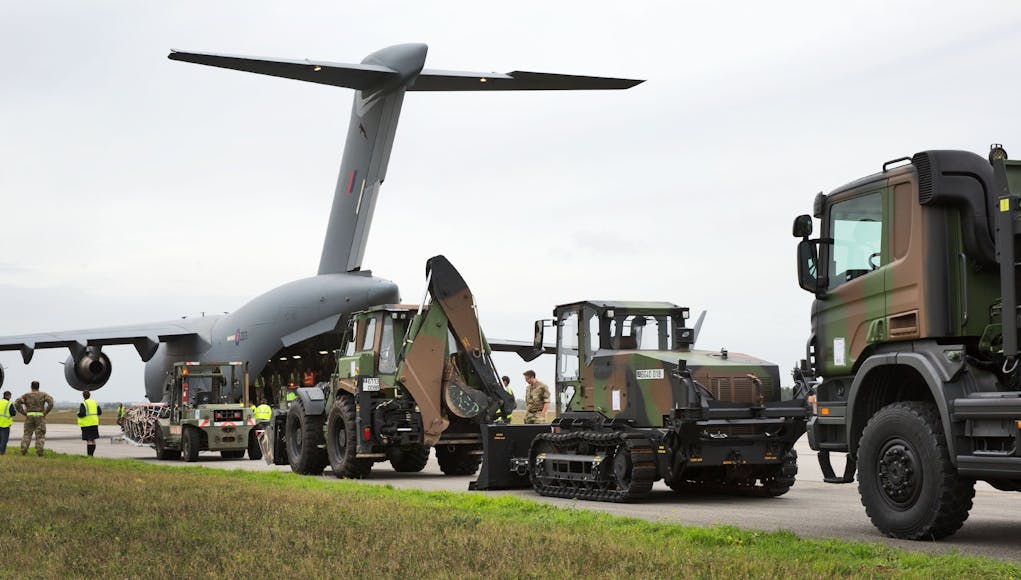
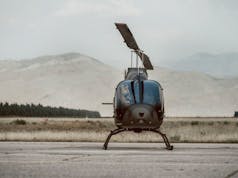
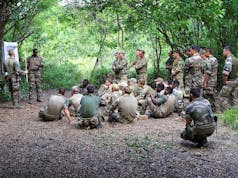
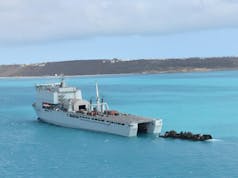
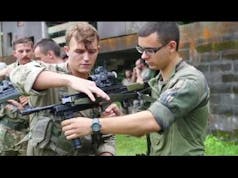

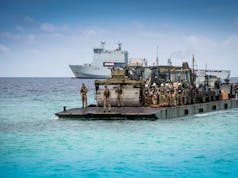

Excellent.
There is sufficient reason to make this a permanent arrangement in my opinion, to help with disasters like this, security of the islands and counter narcotics patrols.
Instead of us the French and Dutch sending ships all year round for patrols, we could perhaps share the security and patrol aspects taking it in turns. This could free up resources in all 3 navies.
I agree Kieren
There is also reason for the UK Aid Budget to be funding the building of the ships and services it regularly uses – not just on a “usage” basis but in actually purchasing some of the assets and paying for their maintenance.
The Karel Doorman is a great example of a ship that is highly useful both militarily and from a humanitarian aid perspective. Very impressive in my opinion and the UK should be buying 8 of them. 4 from UK Aid Budget and 4 from MOD budget.
Can’t argue with that, that is something I would happily support.
I think someone said on here a while back ‘the US has taken our role as policeman of the seas so let us be the hospital of the sea’
And I think that could be done in a way, there is no reason why we cannot buy, run and operate a fleet of perhaps 6 multi role auxiliary vessels, specialising in disaster relief, hospital, aid delivery, as well as patrolling, fully funded from the aid budget, as well as in an emergency situation it could be used for military operations, logistics, amphib etc.
We have the second highest aid budget in the world, so the money is there if we had some innovation at the top making these decisions.
I agree. But remember the French and Dutch have military bases in the Caribbean, we do not.
Yeah true, there is talk of us setting up a permanent base there as well.
But instead of that we could possibly jointly operate a military installation that is the headquarters of disaster relief and security. Then we could use their bases when needed in an agreement.
Just ideas and my opinion obviously but I do think it would be a good idea.